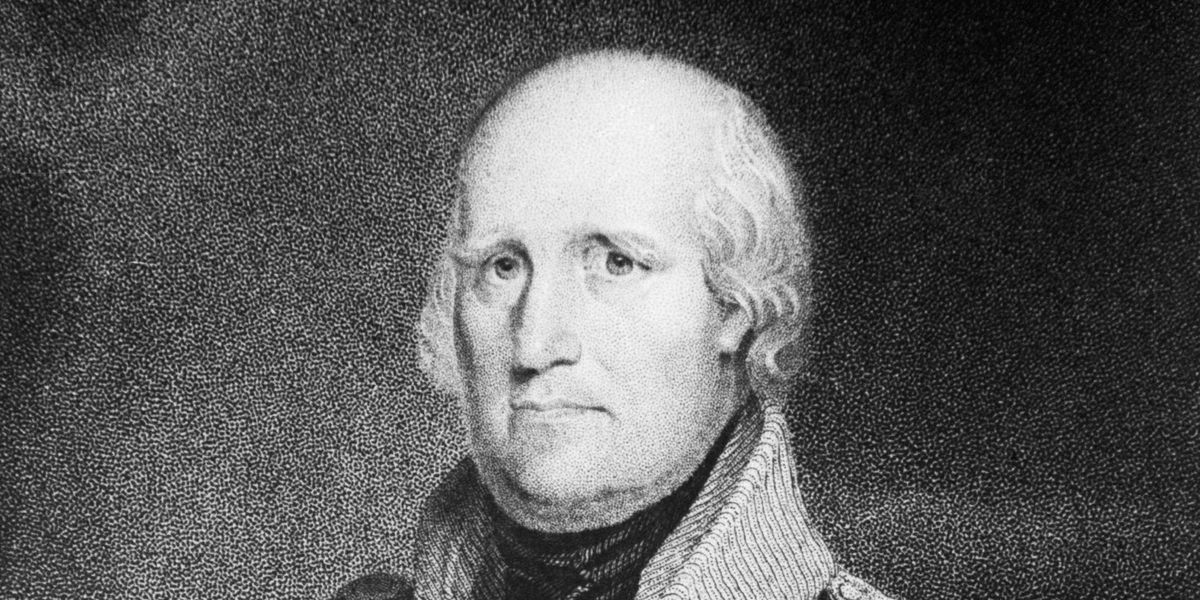You are viewing the article George Rogers Clark at Lassho.edu.vn you can quickly access the necessary information in the table of contents of the article below.

(1752-1818)
Who Was George Rogers Clark?
During the Revolutionary War, George Rogers Clark became the “Conqueror of the Old Northwest,” capturing territory that expanded America’s frontier. After the war, Clark was left penniless due to debts he had incurred in order to support his troops.
Early Life and Siblings
George Rogers Clark was born in Albemarle County, Virginia, on November 19, 1752. Clark had four sisters and five brothers (his youngest brother, William Clark, would go on to co-lead the Lewis and Clark expedition).
Revolutionary War Campaigns
By the 1770s, some intrepid colonists had gone into the territory of Kentucky to claim new land; Clark used the surveying skills he had learned from his grandfather to join them. However, Indian tribes were fighting back against the encroaching settlers. With the Revolutionary War, Indian raids worsened as the British armed some tribes against the colonists. Faced with this threat, Clark came up with a plan to defend the settlers by gaining control over more of the Northwest Territory.
When Clark asked Virginia for support, Governor Patrick Henry acceded to Clark’s plan and gave him command of the mission. Clark and about 175 men marched to Kaskaskia (in present-day Illinois) and took the fort there on July 4, 1778, with no exchange of gunfire. Clark then took control of nearby Prairie du Rocher and Cahokia, and went on to negotiate with several Indian tribes, convincing them to stop fighting for the British.
Clark had also taken Fort Sackville at Vincennes (in present-day Indiana), but it was soon retaken by the British. Determined to regain the fort, Clark and about 170 men made a 200-mile journey there—much of it through freezing floodwaters—in February 1779. At Vincennes, Clark managed to trick the fort’s inhabitants into thinking he had a greater number of men with him. He demanded that the British commander, Henry Hamilton, unconditionally surrender. In order to show the Indian tribes in the area that their British allies could not protect them, and to intimidate Hamilton, Clark then ordered that four captured Indians be publicly tomahawked and killed. Hamilton agreed to nearly all of Clark’s terms.
Clark had wanted to proceed to Detroit, but never received the reinforcements he needed to do so. Even without Detroit, when the Treaty of Paris (1783) officially ended the Revolutionary War, the territory Clark had gained helped America lay claim to a large swath of land.
Postwar Troubles
As the highest-ranking officer in the territory during these wartime campaigns, the responsibility for obtaining supplies lay with Clark. With no nearby official support, Clark signed for materials himself, a decision that came back to haunt him.
After the war, Clark was initially hopeful that Virginia or the national government would settle the debts he had incurred while fighting on the frontier, particularly given the territorial gains the country had made. However, no government would take responsibility for these debts, leaving Clark to be pursued by creditors.
Clark took work as an Indian commissioner and as a land surveyor, and even considered leaving America to live in Spanish territory. But whatever he did, claims and suits related to Clark’s wartime debts overshadowed the rest of his life.
Death and Legacy
In 1809, a serious burn led to Clark’s leg being amputated, which meant Clark could no longer live on his own. He was 65 when he died on February 13, 1818, at his sister’s farm outside of Louisville, Kentucky.
After his death, Clark’s family continued to the fight for his debts to be paid by the government; his heirs eventually obtained a financial settlement. Though his accomplishments were discounted during his lifetime, the role Clark played in American expansion is fully recognized today.
QUICK FACTS
- Name: George Rogers
- Birth Year: 1752
- Birth date: November 19, 1752
- Birth State: Virginia
- Birth City: Albermarle
- Birth Country: United States
- Gender: Male
- Best Known For: George Rogers Clark fought on the northwest frontier during the Revolutionary War, achieving remarkable victories that helped America expand its borders.
- Astrological Sign: Scorpio
- Death Year: 1818
- Death date: February 13, 1818
- Death State: Kentucky
- Death City: Louisville
- Death Country: United States
Fact Check
We strive for accuracy and fairness.If you see something that doesn’t look right,contact us!
CITATION INFORMATION
- Article Title: George Rogers Clark Biography
- Author: Biography.com Editors
- Website Name: The Biography.com website
- Url: https://www.biography.com/military-figure/george-rogers-clark
- Access Date:
- Publisher: A&E; Television Networks
- Last Updated: November 5, 2021
- Original Published Date: April 2, 2014
QUOTES
- Great things have been affected by a few men well conducted.
Thank you for reading this post George Rogers Clark at Lassho.edu.vn You can comment, see more related articles below and hope to help you with interesting information.
Related Search: